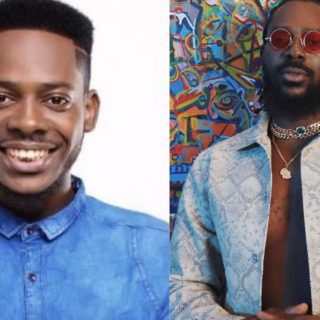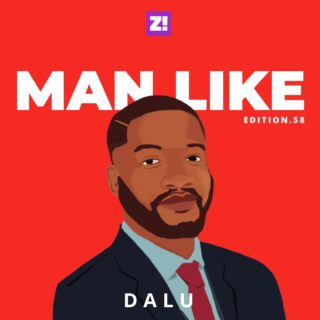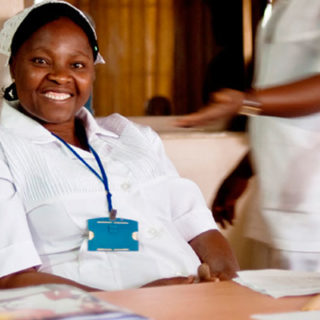What does it mean to be a man? Surely, it’s not one thing. It’s a series of little moments that add up. Man Like is a weekly Zikoko series documenting these moments to see how it adds up. It’s a series for men by men, talking about men’s issues. We try to understand what it means to “be a man” from the perspective of the subject of the week.
Today’s Man Like is Yimika Owoaje, a musician and creative. He talks to us about switching from engineering in university to becoming a creative, support from his father and his plans for the future.
How would you describe yourself?
I’m a creative that has put my hand in different things at different times. Initially, I started with writing and that snowballed into me shooting videos. In uni, I started a parody news podcast called Straight Out of the Calabash where I discussed African news in a hilarious way. Then I also started trying to rap. The keyword is “trying” because I was terrible, but I was having fun making them. Then I got interested in films and writing them so my parents encouraged me to enrol at the London Film Academy for a masters in screenwriting.
Your parents seem supportive of your chosen creative path.
They are. My dad, a lecturer of music at the University of Ibadan, is also a creative, so he understands and encourages my passion for the arts for this reason. We even collaborated on a song together.
What’s your favourite memory of your dad?
It has to be when we made the song together. One time, I came home and asked him to lay down a sax solo for a beat I just made and he agreed. The song named Canada is one of my favourite works because my dad and I were able to come together as creatives and bond over music. When I finished producing the track and played it for him, he sent me a text saying he was proud of me. I felt victorious and happy I hadn’t let my father down.
Why were you thinking you had let him down?
Well, I felt that way since he tried to make me start playing a musical instrument in childhood, but I just wasn’t interested in it. Also, the way my school issues panned out, I felt that way a lot.
What happened?
I started out studying industrial and production engineering in university, but I hated the course so much. It was boring and I struggled in class. It also didn’t help that my hall of residence was far from my department, and I had to walk all the way because I had crashed my car a few weeks before school resumed.
One day, I told my mum I didn’t want to do the course anymore. She was sceptical at first because she really wanted me to be an engineer, but she saw that my heart wasn’t in it. So I switched to sociology. I wanted to be a writer and I wanted a course that would give me a good grasp of human society.
You seem closer to your mum.
Yeah. My dad hardly shows emotions and keeps to himself. My mum is more vivacious. She’s also my personal person; we talk freely and I even tell her about the women I’m talking to without expecting to receive an awkward lecture about safe sex and being careful.
My mum is always in my corner encouraging me to do what I’m passionate about. She always tells me she believes in me and my work. She’s been a pillar for most of my life.
That’s nice. Outside academics, how was university life for you?
There were two parts. Initially, I felt like I was in the shadow of one of my closest friends. He was literally bigger than I was and more popular. Later, I became part of a group of creatives I met at the University of Ibadan called Mad District. We did all sorts — skits, podcasts, videos. That was how my creative journey started. Over time, I sort of became popular and many people knew me. I had a lot of fun during this period.
Then you travelled for film school.
For a while, I didn’t feel like I deserved to be travelling abroad for film school when I had not created a short film. I was worried I would end up disappointing everyone. My former workplace didn’t think I was talented enough to work with them after my NYSC, so why did my parents think I was worthy of going abroad for film school? I had been in proximity to the industry when I worked as a production assistant and nobody had recognised my talent, so I was afraid I didn’t have any.
What happened at the job?
I wasn’t enjoying what I was doing. To be honest, I wasn’t the best employee. Before I got the job, I thought it was going to be an avenue for me to create and go wild, but it turned out that my job was just to carry lights and filming equipment. It was monotonous work. That was when I started making skits and short videos, as a way to purge all the thoughts I had compressed in my head. It was my way of procrastinating.
What are your plans after film school?
I’m romanticising the idea of becoming a staff writer on a TV show in the UK. It’s something I’d really love to do and would be a dream come true. Maybe a movie or two. I’d like to bring Nigerian culture to the big screen and change the narrative that all we have are poor kids with flies on their faces.
How did moving from Nigeria to the UK affect you?
I’ve come to the land where light doesn’t go and the internet flows like water, so it’s been great so far. I’ve been able to create more.
What’s been the most jarring difference between living in Nigeria and the UK?
Cars stop for you to cross and nurses don’t shout at you.
Lool.
Check back every Sunday by 12 pm for new stories in the Man Like series. If you’d like to be featured or you know anyone that would be perfect for this, kindly send an email.




